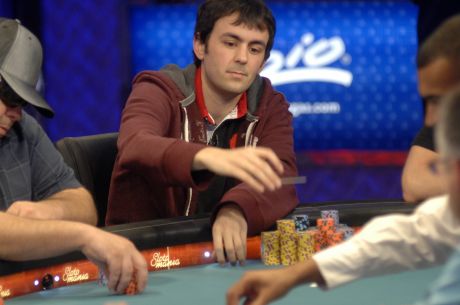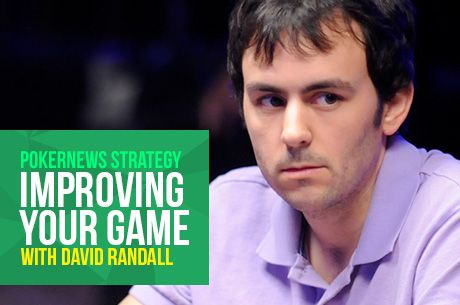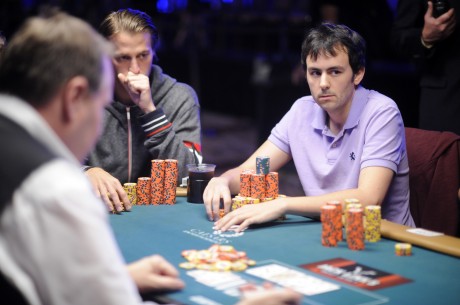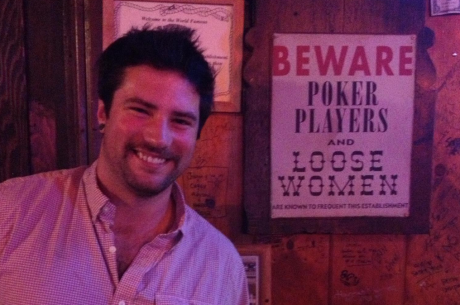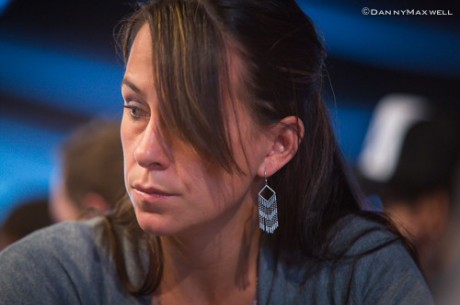Improving Your Game with David Randall, Vol. 6: Arguments Are Opportunities To Improve
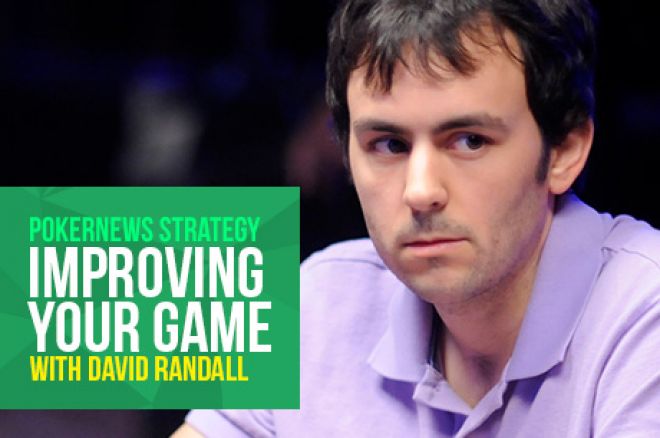
First off, I would like to give a shoutout to my buddy Simon Cremniter for inspiring this post. We had a deep discussion about how we prepare and what instructional tools we use to advance our games. Personally, I watch most replays of major tournaments (World Poker Tour and European Poker Tour events), review hand histories new and old, teach students, and have a pretty intense physical and diet (paleo) regime that I started about six weeks ago. This supplements the 40-50 hours per week that I play.
The purpose of me laying this out was to make you sit back and reflect on what exactly you do to put yourself in position to win every time you play.
The largest point I would like to make is that you must monitor what information you allow in. Poker is a game of arguments. Every time you play a hand you consider your different options and perhaps have a little internal struggle with what option to take until you reach your conclusion. All of this is based on experience and what you have learned from outside sources. Often, you can find yourself arguing with yourself over which play is optimal until you come to a conclusion that you are 100 percent sure is correct, only to hear a different perspective that changes your mind completely. This is one of the things I love about poker. It also shows how important the information you allow in is because if you're basing your decisions on a flawed ideology your results will suffer.
The first rule of arguing is that it is important to not argue past each other (now I sound like a marriage counselor). If one person is arguing on level two and the second person is arguing on level five, then it is quite possible that both people are correct in their arguments and no progress is being made because different concepts are being touched upon. In fact, if the person on level two tries to implement the things they learned from the person on level five, then they will often do so at catastrophic times and only hurt themselves more.
In my vast experience as an instructor (more than 200 private students, 100 hours of instructional videos, and four in person camps), I have come across spots where I was teaching a concept to someone on level five when their thought process was on level two. Shockingly, no real progress was made in this session. I had to learn the hard way from these situations that what level you are teaching on is equally important to what specific concepts you are teaching. This is why there is no room anymore for instructors that teach on the same level or the same concepts, regardless of their clientele.
The relationship between coach and player is one of the most important relationships you will have in your poker career. I value the role of the instructor as an art. The first challenge is figuring out what level the player is on, which in itself is like solving a puzzle. I normally talk to the person a little bit and can quickly tell based on what words they choose to use how accomplished they are. I can also draw from other questions I ask them �� even sometimes completely unrelated to poker �� to get a good feel for their world view, which can definitely influence what specific leaks you will see. Ironically, this is the same tactic I use at the table to get a good read on someone's capabilities. If a person is on level two, I generally teach to level three. The concepts one level higher are generally the ones that the student has heard of and tries to implement, but does so incorrectly. Everyone longs to play on a higher level, but sometimes you need guidance from a player that plays above the desired level to help you get there because it's familiar territory.
It's like not having any playoff experience and playing on a team with proven champions that can help show you the ropes, and I'm a Cleveland Cavaliers fan so this is a particularly applicable metaphor to me.
The beauty of watching replays is that you can personally judge the quality of someone's play while you watch. Many times I find myself yelling at my laptop, "Wow, how did he just make that awful play?" You can personally pick and choose what you want to incorporate into your game and leave behind what you think is subpar. There is a problem, though, and that is that you're viewing it from the perspective of the level you're on so perhaps that person was doing something that went over your head and you judged it as "bad" because you didn't get their thought process. Hand histories are also great because you can judge yourself the same way, but the same issue comes up there. Only with a coach that can read what level you are on and cater to it accordingly can you be properly exposed to high-level concepts. This can also be done by consistent study of forums, or perhaps by consciously making an effort to surround yourself with people that are on higher levels than you �� immersing yourself in their high-level culture.
I have often noticed the Milgram Effect kicking in with students of mine. I may not have a shiny white lab coat, but they believe that since I am a more accomplished player that they must take everything I say as fact. I often use this against them to encourage them to argue with me and challenge every point I make because if someone is capable of arguing the concepts then that means they are getting it. If an instructor did not develop this dynamic and instead allowed students to just accept everything they say as truth, then they are not only robbing the student of potential growth but also robbing themselves of the opportunity to go back over a concept they thought they had down only to realize they had been doing something incorrectly all along, and this would be exposed in the argument.
Personally, I have always hated confrontation and arguments, but poker has taught me that sometimes it is necessary to help you evolve as a person, or in this case a player. Instead of going through the motions of maybe watching some poker video and expecting things to work out, ask yourself, "Are the things I'm doing specifically making me better?" Once you open that debate with yourself, you can often find the path to success in this game, though it will be an ongoing journey that we all will endure.
So until next time, embrace arguments as an opportunity to help you broaden your horizons and improve. You never know what solidly-entrenched view was hindering you the whole time.
For more strategy tips, tricks, tutorials, podcasts, and more, head to the PokerNews.com Strategy section of the site and start exploring today!
In this Series
- 1 Improving Your Game with David Randall, Vol. 1: Teaching Through Examples
- 2 Improving Your Game with David Randall, Vol. 2: Creating the Perfect Hybrid Player
- 3 Improving Your Game with David Randall, Vol. 3: Psychology of Downswings and Empowerment
- 4 Improving Your Game with David Randall, Vol. 4: No Substitute for Relentless Belief
- 5 Improving Your Game with David Randall, Vol. 5: Developing Mental Toughness
- 6 Improving Your Game with David Randall, Vol. 6: Arguments Are Opportunities To Improve

